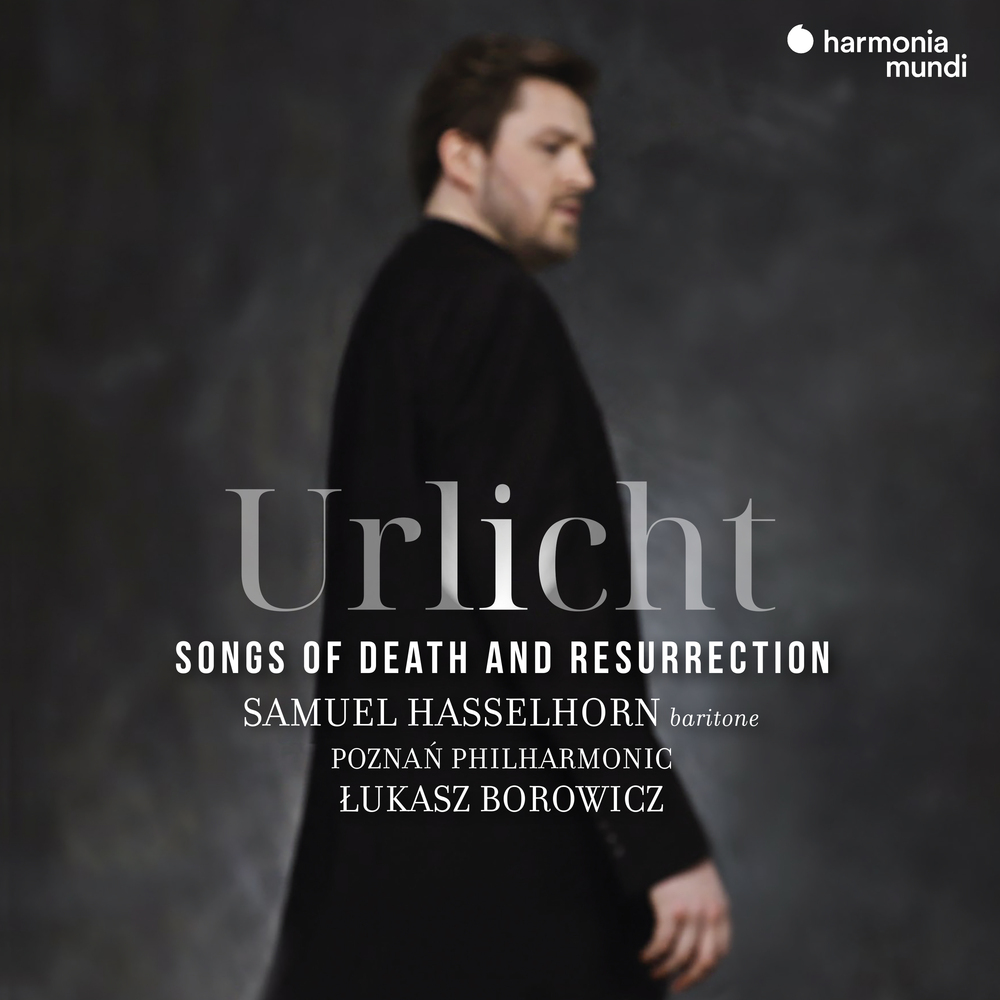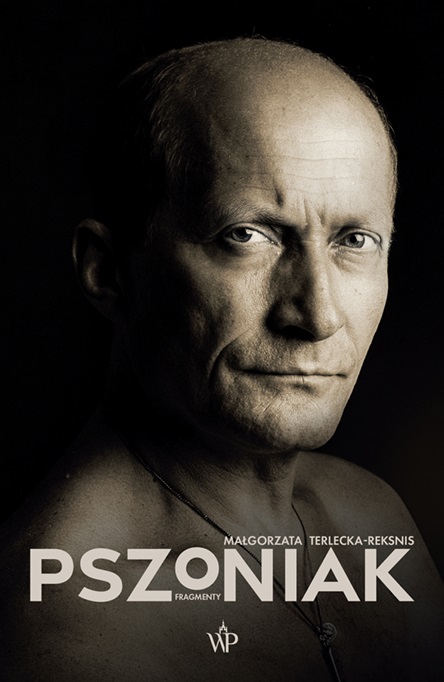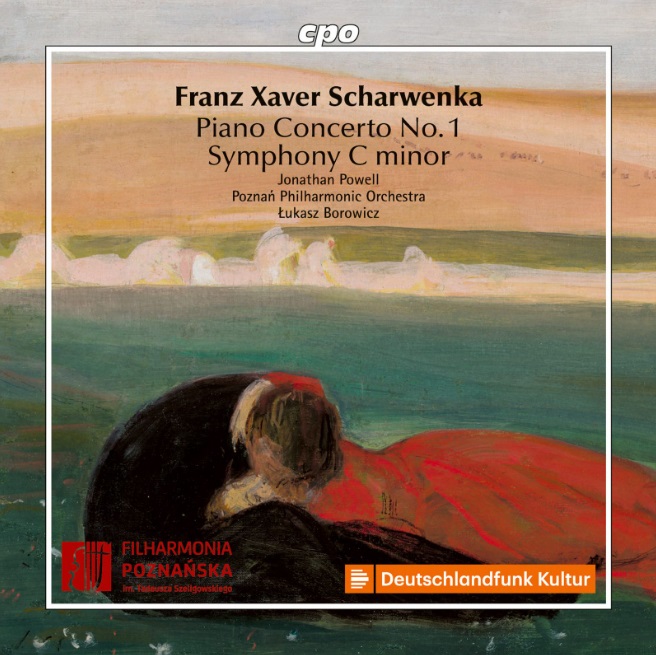THE BOX OFFICE OF THE POZNAŃ PHILHARMONIC
We wish to inform that on 31 October 2024 (Thursday), the box office of Poznań Philharmonic will be closed.
We encourage you to purchase the tickets online.
This year sees the tenth edition of Krzyżowa-Music Festival, of which you are a co-founder and Artistic Director. Where did the idea to hold a music festival in a place like this originate?
Two things came together: Having had a long-time connection with Dr. Matthias von Hülsen, whom I first met as a teenager when he invited me to be part of the „Junge Elite” concert series at Festspiele Mecklenburg-Vorpommern, a major German summer festival of which he is a founder and was executive director. And having participated regularly at the Marlboro Music Festival in Vermont (USA), which has been formative for me musically and personally.
Through Krzyżowa, these two things all of a sudden came together quite naturally:
The Krzyżowa estate, formerly Kreisau, was once owned by the von Moltke family, and Helmuth James and Freya von Moltke were friends with one of the Marlboro Music Festival’s founders, pianist Rudolf Serkin. And Matthias von Hülsen, is family-related to the Moltke family.
The estate of Krzyżowa, which was destroyed during WWII, has been re-constructed after the reconciliation mass exactly 35 years ago and is now a frequently visited center for meetings and youth exchange programs. So it seemed like an ideal place to host some 50 musicians to spend time exploring chamber music and also to make our participants aware of the history of Kreisau/Krzyżowa.
Workshops constitute an important element of Krzyżowa-Music Festival. Was your underlying intention to merge your artistic accomplishments with educational activity?
The character of Krzyżowa Music is strongly influenced from my experiences at Marlboro Music: I came there as a „junior“ musician and had the opportunity to work on a wide range of chamber music repertoire with wonderful fellow juniors and the chamber music legends of our times. Yet, everybody was open to everybody else‘s musical input- whether old or young- and the study process was at eye-level. There was hardly ever a masterclass atmosphere about it, even though, of course it is clear that for instance an Arnold Steinhardt (ex-primarius of the Guarneri String Quartet) has so much to „teach“ his younger colleagues. At the same time, he would always be equally open to any suggestions from his younger colleagues.
At the time, this was a musical approach I hadn‘t experienced before, and I found it beautiful.
The idea that one‘s musical journey and artistic development is a life-long learning process, and that all generations can always learn from and inspire each other.
As soloist, you have performed with illustrious orchestras led by such conductors, as Claudio Abbado, Daniel Barenboim, Charles Dutoit, Lorin Maazel, Kent Nagano… At the same time, you are very active as chamber musician. What do you find fascinating about performing with a symphony orchestra, and what about playing with a chamber ensemble?
First of all, I consider myself very fortunate to have had the opportunity to play both with symphony orchestras and chamber music for the major part of my musical journey. Exploring a composer’s chamber music literature often seems to offer a deeper access into a composer‘s „inner world“. So I feel to get to know a composer better by knowing his or her chamber music repertoire, and this can only help accessing their orchestral repertoire.
Of course, there are concertos where the roles between the soloist and the orchestra are more hierarchically distributed, such as for instance a Mozart or a Paganini Violin Concerto, than say the Brahms or Bartók Violin Concertos, where some solos in the orchestra are just as important as the solo violin part itself.
But in general the approach towards symphonic and chamber music isn’t so different, I find. At least when it comes to the actual music making: It is all about listening and reacting towards other.
From your earliest age, you have also performed with your pianist sister Nicole. Do you come from a musical family?
My parents are both musical and love music, but have never taken it to any professional level. There are both in the medical (care) field.
In the 2024/2025 artistic season you are the Artist-In-Residence of Poznań Philharmonic Orchestra. In the previous, 2023/2024 season, you held a similar post in Bretagne, where you were Artist-In-Residence of Orchestre National de Bretagne. Do you know that Poznań is a twin town to Rennes, and the region of Wielkopolska – a twin region to Bretagne? One could say that Polish and French towns, as well as a Polish and French regions are also bound by the person of a German violinist, an artist-in-residence… And everybody is bound by music…
Wow, I admit that I wasn’t aware of this beautiful connection! We should all plan something together with these two wonderful orchestras!
Interviewer
Anna Plenzler
The newest record by Poznań Philharmonic Orchestra, this time featuring Symphony in C minor, Op. 60, and Piano Concerto No. 1 in B-flat minor, Op. 32 by Franz Xaver Scharwenka is about to hit the musical shelves. The album was recorded by the Poznań ensemble under Łukasz Borowicz with Jonathan Powell, the British virtuoso renowned for unconventional repertoire, both Romantic, and contemporary. It was released by the German label cpo, a few months prior to the centenary of Franz Xaver Scharwenka’s death, which falls on 8 December 2024.
It is yet another monographic album prepared by the Poznań Philharmonic that contains works by the Szamotuły-born composer. The first, recorded by pianist Francois Xavier Poizat with the same ensemble conducted by Łukasz Borowicz, and published by Naxos, was released in 2011. It contained Piano Concerto No. 4 in F minor, Op. 82, Overture to the opera Mataswintha, Cello Sonata in E minor, Op. 46 (mov. 2 Andante religioso), as well as a selection of Tańce polskie (Polish Dances).
Franz Xaver Scharwenka was born to a Polish-German family in Szamotuły, where he spent the first years of his life. This is also where he took his first musical steps. When he was fifteen, the Scharwenkas moved to Berlin, where Franz Xaver completed middle school and began musical studies. He went down in history not only as an illustrious composer and pianist, but also as educator and organiser of musical life. In 1881, he founded Scharwenka Conservatory in Berlin, and between 1891 and 1898 ran Scharwenka Music School in New York City. Revered throughout America, he had his only opera, Mataswintha, staged at New York’s Metropolitan Opera. He also wrote Methodik des Klavierspiels, which was published in Leipzig in 1907. A friend of Franz Liszt’s (to whom he dedicated the very Piano Concerto No. 1 in B-flat minor just recorded by the Poznań musicians), he also enjoyed recognition from Johannes Brahms.
Even though Scharwenka completed work on Symphony in C minor, Op. 60 in the early-1882, it was only almost two years later, on 1 December 1883, that the work had its premiere at the Königlichen Akademie der Künste in Copenhagen. Signale für Musikalische Welt wrote at the time: … in general, the piece was received favourably. In particular, the beautiful Scherzo and Adagio.
Piano Concerto No. 1 in B-flat minor was the composition to have paved the way for Scharwenka to world recognition. Initially, a two-movement fantasia, it sounded in its present, three-movement form for the first time on 24 April 1877 in Bremen. After the premiere performance, a reviewer wrote that the piece, “just like Chopin’s works, possesses the virtue of pure piano quality, while being splendidly instrumented to boot (…).”
Since its world premiere in June, the album recorded by Poznań Philharmonic’s Orchestra under Łukasz Borowicz and Poznań Nightingales Boys and Men’s Choir with the baritone Samuel Hasselhorn, has been garnering excellent reviews and distinctions.
Entitled Urlicht. Songs of Death and Resurrection, the album published by the renowned label harmonia mundi has found recognition with a number of music portals and magazines, incl. the Luxembourg’s Pizzicato (Supersonic), Australia’s Limelight Music, Arts & Culture (Editor’s Choice) and France’s Cescendo-Magazine (Joker!), Diapazon (5 diapasons), or Forum Opera (Record of the Month).
You can follow selected reviews below:
PIZZICATO (Luksemburg) https://bit.ly/3Tanhkd
LIMELIGHT MUSIC, ARTS & CULTURE (Australia) https://bit.ly/4e1Rr0X
CRESCENDO-MAGAZINE (Francja) https://bit.ly/4cKENCo
FORUM OPERA (Francja) https://bit.ly/3Z3qUML
OPERA LOUNGE (Niemcy) https://bit.ly/3Xcqkd4
GRAMOPHONE (Wielka Brytania) https://bit.ly/3AHCymp
ONLINE MERKER (Austria) https://bit.ly/3XohJFs
MUSICWEB INTERNATIONAL (Wielka Brytania) https://bit.ly/3WXmMLu
1. Box office of Poznan Philharmonic reopens after summer break on 2 September 2024.
In 2024/2025 artistic season, the box office operates:
- September: Monday-Friday, 1-5 p.m.,
- October-June: Tuesday-Friday, 1-5 p.m.,
- days of concerts organised by Poznań Philharmonic at University Auditorium: box office opens one hour prior to concert and closes at end of intermission.
2. Reserved DL and SG season tickets can be purchased as at 2 September.
3. Reserved KP season tickets can be purchased as at 16 September.
4. Reserved MW season tickets can be purchased as at 26 September.
5. Individual ticket sales at Philharmonic box office, online ticket sales, as well as sales of tickets at Centrum Informacji Kulturalnej (Culture Information Centre, 44, Ratajczaka st.) commence on 16 September.
6. Holders of 2023/2024 electronic tickets are requested to carry these while purchasing 2024-2025 season tickets.
7. Duplicate of a season ticket lost shall be issued against a charge of 50 PLN.
8. Individual ticket reservations, as well as enquiries regarding the new season can be made by mail at: rezerwacje@filharmoniapoznanska.pl, or by phone: (+48) 61 415 63 37; (+48) 61 852 22 66. In September, we shall remain at your disposal in University Auditorium hallway at box office opening times. However, with regard to reservations only, you are requested to contact us remotely (by mail or by phone).
9. Poznań Philharmonic reserves the right to change the above schedule of season and individual ticket sales, as well as to alter the calendar of concerts.

It was merely a fortnight or so ago that the world premiere was held of the newest album recorded by the Poznań Philharmonic Orchestra under Łukasz Borowicz with the baritone Samuel Hasselhorn. The recording, which also features The Poznań Nightingales, the Boys and Men’s Choir of the Poznań Philharmonic, has already garnered excellent international reviews and distinctions.
Entitled Urlicht. Songs of Death and Resurrection, the album published by the renowned label Harmonia Mundi has just been awarded the SUPERSONIC distinction by the prestigious Luxembourg-based music portal PIZZICATO, which also published Remy Franck’s review of the recording.

This is a remarkable CD, not only because of Samuel Hasselhorn’s singing, which is outstanding as expected, but also because of the conductor Lukasz Borowicz. I have made it known in a long series of reviews that I hold him in high esteem. But the sound he produces in this program with the Poznan Philharmonic is phenomenal. In no other recording that I know of does so much happen in the orchestra in Mahler’s Revelge as you can hear in this recording. This is the whole Mahler theatre, the sonic cabinet of curiosities in full! But that’s not all: in Urlicht, the orchestra envelops the voice perfectly and, together with the instrumental parts, brings it to optimum effect, because the music is really complete. And Haselhorn’s voice is no less fascinating in this recital, his singing is dramatically gripping, with colourful and dynamic nuances and a concise presentation of the text. Revelge is not only dramatic with him, it is full of relentlessness, which makes the inner compulsion of the marching drastically audible, regardless of losses. Borowicz and the orchestra reinforce this thoughtless compulsion, which also makes the bones march in rank and file. Engelbert Humperdinck’s Verdorben! Gestorben! from the opera Königskinder is no less gripping because Hasselhorn sings very sensitively and Borowicz makes the rhapsodic quality of the opulent orchestral accompaniment communicative and evocative.
Completely different sounds are offered to the listener in Pierrot’s Tanzlied from Korngold’s Die Tote Stadt, in which the charm and bitterness of Pierrot are ideally combined in Hasselhorn’s lyrical singing to make us empathize with the fate of this clown.
What follows in Mahler’s Um Mitternaht is once again top-notch, as Borowicz places the voice in a luxury box with a wonderfully present and colorful orchestra. In comparison, Hampson and Bernstein sound almost pathetic and mannered.
Hasselhorn sings towards death in a very composed and almost positive and heroic way, without any lachrymose, surrounded by a colorful and grandiose orchestral sound, which has not often been heard in this rhetoric, neither with Karajan nor with Thielemann and Boulez: nowhere is the symbiosis of voice and orchestra as perfect as in this recording.
This is also true of the absolutely phenomenal and exciting Erlkönig setting of Herr Oluf. Mahler’s Urlicht sounds all the more moving in an interpretation marked by naturalness and honesty.
In Alexander von Zemlinsky’s Der alte Garten everything blossoms in the extreme chromaticism of the music, and the fascinating orchestration with the beautifully interwoven vocal lines makes this song transcend into beauty, not least thanks to Hasselhorn’s imaginative and vocally magnificent performance.
There is great romanticism in Braunfels’ description of a soldier’s grave, which contrasts sharply with the surreal duet between Marie and Wozzeck in Berg’s opera. But Marie is actually lost to the world through murder, while Mahler describes death in a completely different way. With Haselhorn, it becomes almost tender and movingly natural.
Borowicz underpins this with just as much beauty in the orchestra. Nothing is lost and you can hear everything interacting beautifully.
During summer break (22 June – 1 September 2024), the box office will be CLOSED.
Box office reopens on Monday, 2 September 2024. Information on dates and manner of collecting season tickets ordered, as well as on reservation of individual tickets shall be posted on Poznań Philharmonic website in mid-August.
I am an elderly boy and let it stay that way. Were I a grown-up man, an elderly fellow, I wouldn’t be able to play. As I am an elderly boy, however, I can still react emotionally. Because I still feel like jumping into the world of imagination and leave it when acting is over, Wojciech Pszoniak says about himself in Małgorzata Terlecka-Reksnis’ book Pszoniak. Fragmenty (Pszoniak. Fragments).
Published recently by Wydawnictwo Poznańskie, the book will be promoted on 14 June (7 p.m. at University Auditorium) at the concert to close the 77th artistic season of the Poznań Philharmonic. On a number of occasions, Wojciech Pszoniak appeared with the Poznań Philharmonic Orchestra complementing the pieces performed with his narration. Dedicated to the memory of this outstanding artist, the concert will also feature guests: Barbara Pszoniak, the actor’s wife, and Małgorzata Terlecka-Reksnis, author of the book. The promotionally-priced publication will be available in University Auditorium hallway on the night, with the author and Barbara Pszoniak signing it at the interval and after the concert.
Complete with archival items – the actor’s personal notes, letters, and photographs from the family archives – made available courtesy of Barbara Pszoniak, the fascinating reading is a record of meetings and conversations held with the great actor and man.
The uncompromising nature and frankness of Wojciech Pszoniak’s comments, ones to give the reader food for reflection, is one of the greatest assets of this extended interview. One remark in particular, deserves a quote: I believe life cannot be directed. Those who say and believe that life is what you make it, are wrong. I let life direct me.
Wojciech Pszoniak… loved for his performances in such productions as “Wesele” (“The Wedding”), “Ziemia obiecana” (“The Promised Land”), “Danton” and “Korczak” by Andrzej Wajda, or “Austeria” by Jerzy Kawalerowicz, as well as for his countless other theatre and film appearances. Yet, as a teenager, the acting genius wanted to become a musician. Following in his grandfather’s and mother’s footsteps, he began his musical education with the violin, only to later learn the oboe and the clarinet. He played in a military band and in an opera orchestra. But then came the studies at the PWST (State Higher School of Acting) in Cracow, and a career in acting to which he chose to dedicate his life. He never forsook music, though, adding the saxophone to the list of instruments he mastered (an ability he employed in films and theatre productions); late in life, he also began to learn to play the cello…
The Poznań Philharmonic was lucky to rank Wojciech Pszoniak among its friends. It was with his acting skills and narration that he embellished several of our concerts at the University Auditorium and the concert hall of the National Philharmonic. We had an opportunity to applaud his appearances in Der Bürger als Edelman by Richard Strauss, Djamileh by Georges Bizet, or Lélio, or the Return to Life by Hector Berlioz…
What was Wojciech Pszoniak like as actor and person? Wydawnictwo Poznańskie has recently published Małgorzata Terlecka-Reksnis’ book Pszoniak. Fragmenty (Pszoniak. Fragments). On 14 June (7 p.m. at University Auditorium), the book will be promoted at a concert dedicated to the memory of this outstanding artist. The event which closes Poznań Philharmonic’s 77th artistic season will feature guests: the actor’s wife, Barbara Pszoniak, and the author of this extended interview, Małgorzata Terlecka-Reksnis. The promotionally-priced book will be available in University Auditorium hallway on the night, with the author and Barbara Pszoniak signing it at the interval and after the concert.

Urlicht – Songs of Death and Resurrection is the latest album recorded by the Poznań Philharmonic Orchestra under Łukasz Borowicz with the baritone Samuel Hasselhorn. The recording also features the boys’ voices of The Poznań Nightingales, the Boys and Men’s Choir of the Poznań Philharmonic.
Although the world premiere is scheduled for 14 June 2024, first reviews are already beginning to appear. Below you will find an account published by Tony Way on the Australian Limelight Music, Arts & Culture platform, where the record was made EDITOR’S CHOICE.
Containing songs and arias by Gustav Mahler, Erich Wolfgang Korngold, Alexander von Zemlinsky, Hans Pfitzner, Engelbert Humperdinck, Alban Berg and Walter Braunfels, the album is published by the prestigious Harmonia Mundi publishers.

,,A dazzling display of fine, young artistry in captivating repertory. Here is a remarkable disc, whose marriage of artist and repertoire must have been made in some mythical, musical heaven.
As many German baritones have done before him, 33-year-old Samuel Hasselhorn is journeying from the world of the classic Lied exemplified by Schubert and Schumann to the more exotic and variegated pastures of post-Romanticism and early modernism both in song and opera.
This recording catches him doing so when his instrument is still at its freshest, youthful peak, full of subtle timbral variations and sensitive, intelligent delivery of text.
Take for example, the two songs he has chosen from Mahler’s Das Knaben Wunderhorn. Hasselhorn invests that sardonic denunciation of militarism, Revelge with increasing drama, freighting the onomatopoeic refrain with skilful, ironic colour. (The version sung by tenor Gösta Winberg in Riccardo Chailly’s otherwise well-regarded recording of the cycle sounds positively one-dimensional in comparison.)
By contrast, Urlicht (perhaps better known in its revised version for alto incorporated into the Resurrection Symphony) is sung with a disarming, simple honesty that stirs the soul.
That soul-stirring quality is also evident in the two other Mahler songs, this time from the Rückert Lieder. Hasselhorn musters impressive technique to navigate the long phrases and low tessitura of Um Mitternacht, his voice valiantly standing out against the stark majesty of the orchestration for low winds and brass. As the artist tenderly bids farewell to the world in Ich bin der Welt abhanden gekommen, there is again a profound sincerity devoid of all artifice that cannot fail to move the listener.
Subtitled “Songs of Death and Resurrection” this disc has plenty of tragedy, ranging from an extract from Humperdinck’s Königskinder where the death of royal children is soothed by an ethereal children’s chorus provided by the Nightingales Boys’ Choir of the Poznań Philharmonic. Raw sexual violence is vividly realised in the murderous duo between Marie and Wozzeck in Berg’s opera, with the help of soprano Julia Grüter.
Hans Pfitzner’s Herr Oluf sees one the Lied’s archetypal harbingers of death and destruction, the Erlking, wreak havoc on a wedding day. (No Lorelei in this program.) Walter Braunfel’s Auf ein Soldatengrab contemplates a soldier’s grave in a highly romanticised mode.
Elements of nostalgia and yearning are beautifully brought to life in the famous Pierrot’s Tanzlied from Korngold’s opera Die tote Stadt and in Zemlinsky’s lusciously orchestrated song Die alte Garten.
Apart from Hasselhorn’s superb singing with its prodigious range of light and shade, the other standout of this disc is the exuberant playing of the Poznań Philharmonic Orchestra under the empathetic direction of Łukasz Borowicz, well captured in every detail by the Harmonia Mundi engineers.
Returning to Chailly, for those old enough to remember being captivated by the vocal makeweights of his Mahler symphony cycle (such as the Zemlinsky Maeterlink-Lieder sung by Jard van Nes and Diepenbrock’s Im großen Schweigen sung by Håkan Hagegård) this disc is definitely for you. If you’re younger, you too will still be inspired by the multi-faceted mastery of one of today’s most promising singers in this ravishing program where resurrection most certainly outweighs death.”


